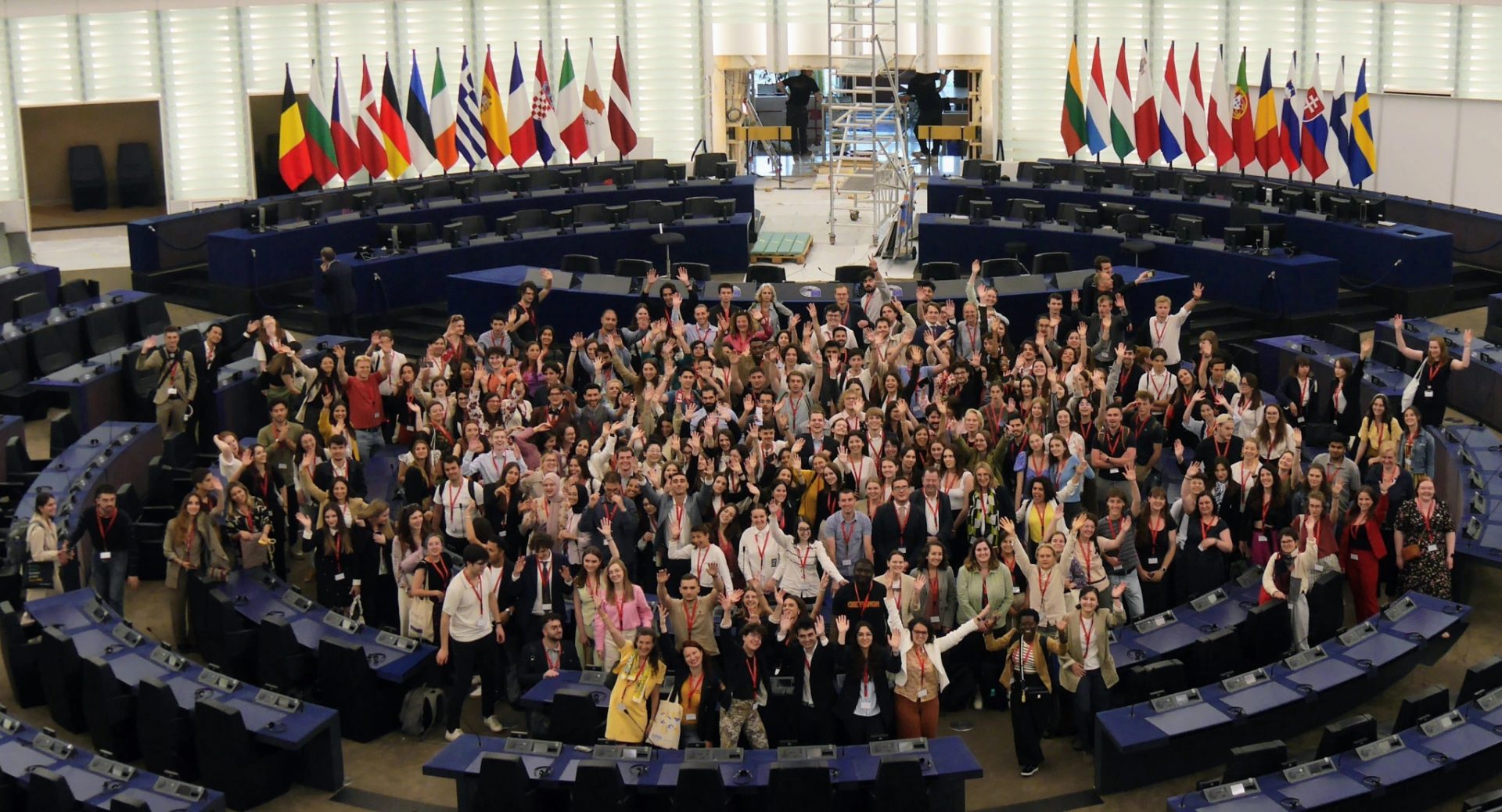From 31 May to 2 June 2023, the European Student Assembly (ESA) 2023 took place in Strasbourg, France. The event gathered 210 students from European University Alliances. Milena, a student of “Language, Communication and Economics in Europe” from the University of Siegen, represented ATHENA at the event. In the interview below, Milena talks about her experience and the outcomes of the ESA.
Hello Milena, what exactly is the European Student Assembly?
Milena: “The European Student Assembly represents the voices and opinions of students of the 44 European University Alliances. This year, 210 students participated, selected from around 1,400 applicants. The students had the opportunity to engage in ten different panels and work on 6 to 10 policy recommendations regarding a specific topic. In the future, these recommendations will be used during the Conference on the Future of Europe and shared with stakeholders as well as within the European University Alliances.”
What topics were covered by the panels?
Milena: “One panel was called “Deliberative versus representative democracy. How to reduce the gap between citizens and policy-makers and create a more united Europe?”. Another panel discussed how to secure fair and sustainable access to energy in Europe at different levels. There was also a panel that discussed what role higher education institutions can play in reducing the skills gap in Europe.”
And in which panel did you participate?
Milena: “My studies are directly linked to the Franco-German couple. I was interested to talk and exchange with other students about the particularities of this friendship and its meaning within a European context. This is why I applied and got accepted for the panel called “Lessons from the past. How could the French-German history of reconciliation serve as a model to overcome conflicts and build unity?”.”
How did you start working on your topic? Did you meet the other students from your panel already before going to Strasbourg?
Milena: “Yes, exactly. After an onboarding session in March, the panels started working and preparing their policy proposals online. There were around 20 participants in every panel and two panel coordinators that organised meetings and contacted experts to help the group. We prepared short presentations on different topics such as current challenges in the EU or the Franco-German history to start off with a common knowledge base. In the following, we brainstormed on concrete policy recommendations and worked on them in subgroups. Two of the seven group meetings within our panel were expert meetings in which an expert gave us its opinion on the general topic as well as our policy ideas.”
And then you travelled to Strasbourg and met each other in person…
Milena: “Correct. On the first day, we had a welcome by coordinators of the ESA and other representatives from the European Commission, the Franco-German University, and the University of Strasbourg in the Robert Schumann Hemicycle of the European Parliament. Moreover, the different panels presented their so-called problem statement, which is the introduction to the panel and its work. At the end of the day, we had a visit of the main hemicycle.”
Sounds interesting, what did you do on the other two days?
Milena: “The second day was all about panel sessions. In workrooms, we concluded our policy proposals and the informal exchanges between the panels. After submitting the final drafts, the panels finished the second day’s work and reviewed all the different policy proposals in case they had any objections.”
“On the third day, all recommendations were presented by the panel coordinators and adopted with a majority vote via an electronic voting system. 75 out of the 79 policy proposals were adopted. After that, there was a closing session with three Members of the European Parliament, two of whom joined us online. In the afternoon, we had a treasure hunt to discover Strasbourg and its important landmarks.”
What was your overall experience of the ESA 2023?
Milena: “All in all, it was a great experience and opportunity for students and their University Alliances. The alliances could improve their visibility and share their objectives with their students as ambassadors. We as students had the chance to learn more about a topic of our interest and share thoughts with fellow European students. The motto “unity in diversity”, that was mentioned in the closing session, sums up the character of the event. We all came with different backgrounds and knowledge and shared the common interest to share our views on the EU’s future, believing it is worth fighting for our values and overcome current challenges.”
Thank you for the interview!
The final recommendations of the European Student Assembly are available here.
Photo credits: Fanny Dubray.

